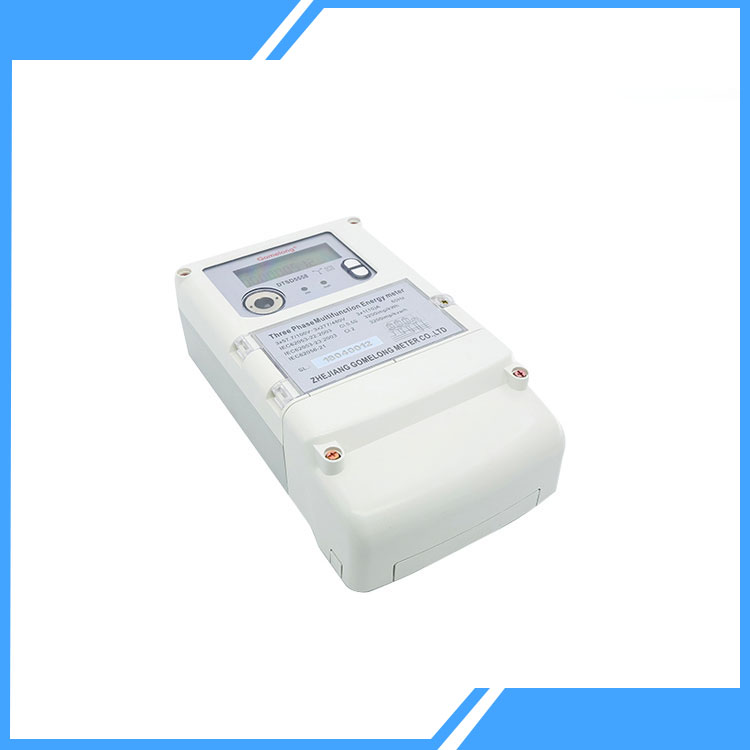Multifunction Meters: The Ultimate Tool for Accurate Measurements
2025-03-07
In today’s world, precise measurements are essential across a wide range of industries, from electrical engineering to manufacturing and even home improvement projects. One of the most versatile and useful tools for obtaining these measurements is the multifunction meter. Also known as a multi-meter or all-in-one tester, this device is designed to measure a variety of electrical parameters, providing convenience and accuracy in a single unit.
In this blog, we will explore what multifunction meters are, how they work, and why they are essential for anyone who needs reliable measurements in their work or daily life.
What is a Multifunction Meter?
A multifunction meter is a handheld instrument used to measure several electrical quantities such as voltage, current, resistance, continuity, and sometimes even more advanced parameters like capacitance, frequency, and temperature. It combines the functionality of multiple specialized meters into one compact and easy-to-use device.
There are two primary types of multifunction meters: analog and digital. Digital multifunction meters (DMM) are more common in modern applications due to their accuracy, ease of reading, and additional features such as auto-ranging and backlighting.
Key Features of Multifunction Meters
1. Voltage Measurement
Multifunction meters are primarily used to measure voltage. These meters can test both AC (alternating current) and DC (direct current) voltages, which are commonly found in electrical circuits. Whether you are troubleshooting an electrical system at home or testing the power supply in a complex industrial setting, the ability to measure voltage accurately is one of the most essential features of a multifunction meter.
2. Current Measurement
In addition to voltage, multifunction meters can measure both AC and DC current. This is particularly useful for checking the current flow in electrical circuits, identifying short circuits, or ensuring that devices are drawing the correct amount of current. Depending on the model, a multifunction meter can measure both high and low current levels, making it suitable for a wide range of tasks.
3. Resistance and Continuity Testing
Resistance measurement is another critical function of multifunction meters. By measuring the resistance, these devices can help identify faulty components, open circuits, or broken connections. The continuity test feature, which emits an audible beep when there is a complete circuit, allows you to quickly verify whether a wire or component is functioning as it should.
4. Capacitance, Frequency, and Temperature
Advanced multifunction meters come with additional features such as capacitance, frequency, and temperature measurement. Capacitance testing is useful when dealing with capacitors in electrical circuits, while frequency measurement allows you to test signals and oscillators. Some models even have temperature probes, which can be used for applications in HVAC systems, automotive diagnostics, or other temperature-sensitive processes.
5. Data Hold and Auto-Ranging
Many multifunction meters come with a data hold feature that allows you to freeze the reading on the display for easy reference, especially when working in hard-to-reach areas. Auto-ranging is another common feature that automatically adjusts the measurement range, so users don’t need to manually set it. This ensures that the readings are always accurate, whether you are working with low or high values.
Why Choose a Multifunction Meter?
1. Convenience and Portability
Multifunction meters are incredibly portable and convenient. Instead of carrying multiple instruments for measuring voltage, current, and resistance, you can rely on a single device that does it all. This makes them an ideal choice for professionals who need to carry their tools with them, such as electricians, technicians, and engineers. Their compact size allows them to fit easily into toolkits or work bags, ensuring that users always have the right tool on hand.
2. Cost-Effectiveness
Investing in a multifunction meter is often more cost-effective than purchasing separate meters for each measurement type. With one device, you can perform a wide variety of tasks, which ultimately saves both time and money. Moreover, the ability to perform multiple tests with a single tool reduces the need for extra equipment, which can take up space and be costly to maintain.
3. Accuracy and Precision
Accuracy is paramount when dealing with electrical measurements, and multifunction meters provide highly accurate readings. Digital multifunction meters, in particular, offer precise measurements that are easy to read and interpret. Features such as auto-ranging and data hold further enhance accuracy by minimizing human error, ensuring that users can rely on their measurements for troubleshooting or diagnostics.
4. Versatility
From household electrical repairs to complex industrial applications, multifunction meters can be used in a wide variety of environments. Whether you're testing the voltage in a car battery, checking the current in an electrical circuit, or measuring the resistance of a component in an appliance, multifunction meters offer the versatility to handle a range of tasks. Their broad range of functions makes them invaluable for both DIY enthusiasts and professionals alike.
5. Safety
Safety is another major consideration when working with electrical equipment. Multifunction meters come with built-in safety features that protect both the user and the instrument itself. Many meters are designed with overload protection, ensuring that the device won’t be damaged if subjected to high voltages or currents. Additionally, some models feature non-contact voltage detection, allowing users to check for live wires without directly touching them, further enhancing safety during electrical testing.
Common Uses of Multifunction Meters
Multifunction meters are used in a variety of applications, including:
1. Electrical Troubleshooting
For electricians and technicians, multifunction meters are indispensable tools for diagnosing electrical issues. Whether it’s checking the power supply to a device, measuring current flow, or testing a circuit for faults, these meters help quickly pinpoint problems and ensure that repairs are carried out effectively.
2. Home Maintenance
At home, multifunction meters can be used for simple tasks like checking the health of batteries, testing household appliances, and verifying electrical outlets. They also come in handy for ensuring that home wiring is functioning properly, avoiding potential electrical hazards.
3. Automotive Diagnostics
Multifunction meters are commonly used in automotive diagnostics. They help mechanics and car enthusiasts check vehicle electrical systems, including battery voltage, alternator performance, and continuity in wiring. The ability to measure current, voltage, and resistance is especially useful when working on automotive circuits.
4. Industrial Applications
In industrial settings, multifunction meters are used to ensure that equipment is operating efficiently and safely. They are used to measure power supply quality, troubleshoot electrical systems, and ensure that machinery is functioning within the correct parameters.
Conclusion
A multifunction meter is a must-have tool for anyone working with electrical systems or circuits. Its ability to measure a wide range of parameters, including voltage, current, resistance, and more, makes it an incredibly versatile and practical instrument. Whether you are a professional technician, an engineer, or a DIY enthusiast, a multifunction meter will help you perform tasks efficiently, safely, and accurately. Investing in a high-quality multifunction meter will undoubtedly make your work easier and more reliable, offering the precision needed for all your electrical measurement needs.



